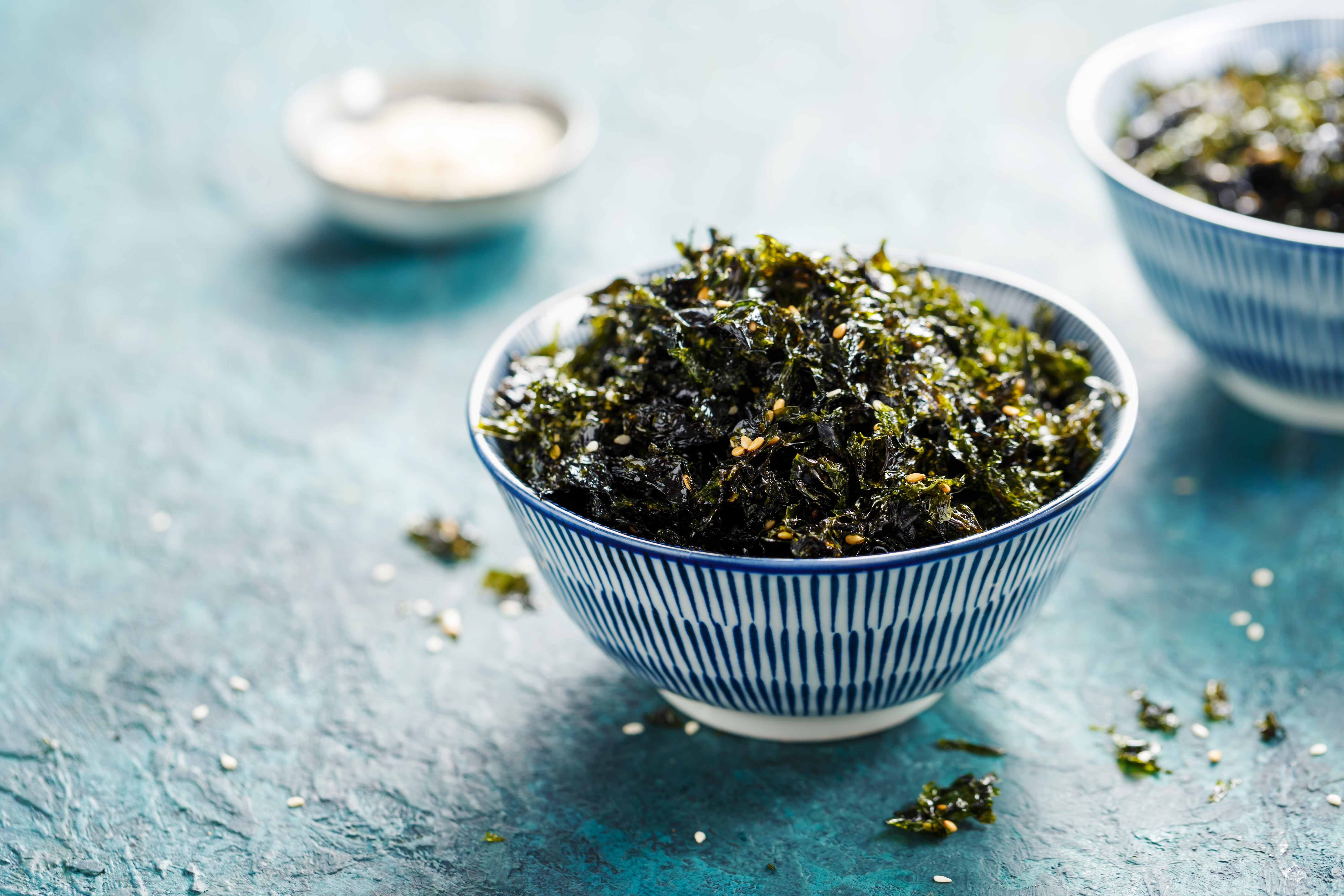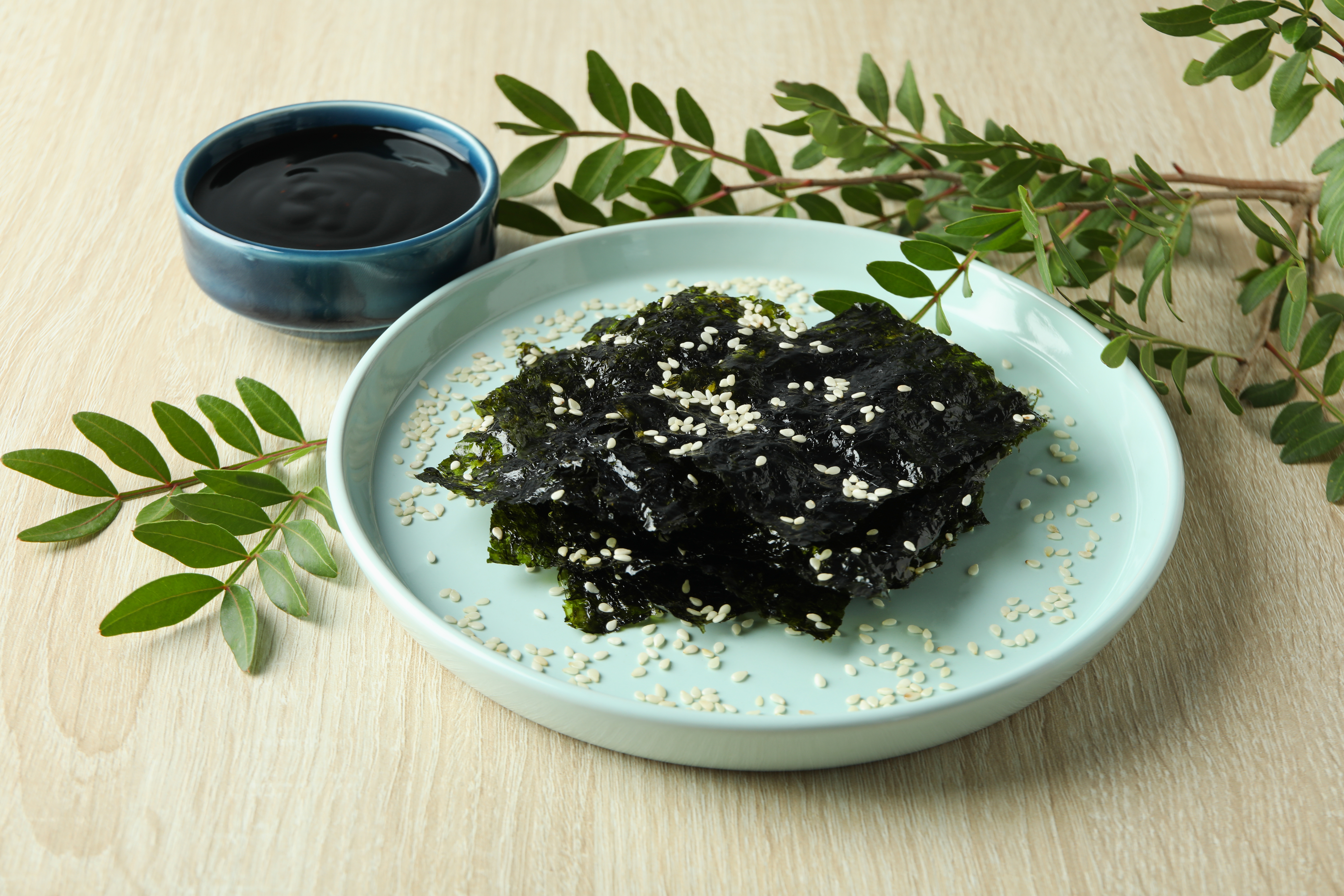12 Amazing Health Benefits of Seaweed You Might Not Know
In the vast, mysterious expanses of the ocean, seaweed thrives as one of the most versatile and nutrient-rich plants on Earth. Often overlooked in favor of more traditional land vegetables, seaweed is slowly gaining recognition for its myriad health benefits and its potential to transform wellness routines around the globe. From its rich nutrient profile to its environmental benefits, seaweed is not just a staple in Asian cuisine but a powerhouse of health secrets waiting to be discovered. This article will delve into 12 incredible health secrets of seaweed that could revolutionize your approach to wellness, offering insights that may forever change the way you view this oceanic treasure. As we explore each of these secrets, it’s important to understand the diversity within the world of seaweed. With over 10,000 species ranging from the familiar nori to the lesser-known wakame and kombu, each type of seaweed offers unique benefits. Join us as we dive deep into the ocean to uncover the hidden gems of seaweed and how they can enhance your life.
1. Nutrient-Dense Superfood

Seaweed is often referred to as a superfood, and for good reason. It is packed with an impressive array of vitamins, minerals, and antioxidants. Seaweed contains high levels of iodine, which is crucial for thyroid function. It also provides a rich source of calcium, magnesium, potassium, and iron, making it an excellent dietary option for those looking to boost their mineral intake. Additionally, seaweed is abundant in vitamins A, C, E, and K, each playing a vital role in maintaining overall health. The nutrient profile of seaweed is complemented by its high fiber content, which aids in digestion and helps maintain a healthy gut. The presence of omega-3 fatty acids, typically found in fish, makes seaweed a valuable plant-based alternative for those seeking to improve heart health. Furthermore, the antioxidants found in seaweed, such as fucoxanthin and phlorotannins, help combat oxidative stress, reducing the risk of chronic diseases. By incorporating seaweed into your diet, you can benefit from a broad spectrum of essential nutrients that support a balanced and healthy lifestyle.
2. Weight Management Ally

For those looking to manage their weight, seaweed can be a powerful ally. Its low-calorie content, combined with its ability to promote a feeling of fullness, makes it an ideal addition to a weight management plan. The fiber in seaweed, particularly alginate, has been shown to inhibit the digestion of fat, which can contribute to weight loss. By slowing down the absorption of fat, seaweed helps reduce overall calorie intake and supports a healthy metabolism. Moreover, seaweed's ability to regulate blood sugar levels is another factor that makes it beneficial for weight management. Compounds such as fucoxanthin have been found to enhance insulin sensitivity, which can help stabilize blood sugar levels and reduce cravings. By incorporating seaweed into meals, individuals may find it easier to maintain a balanced diet and avoid the pitfalls of unhealthy snacking. As a natural and nutrient-rich food, seaweed offers a sustainable and effective approach to achieving and maintaining a healthy weight.
3. Thyroid Function Support

The thyroid gland plays a pivotal role in regulating metabolism, and iodine is essential for its proper function. Seaweed is one of the richest natural sources of iodine, making it particularly beneficial for thyroid health. Iodine deficiency can lead to a range of health issues, including goiter, fatigue, and weight gain. By consuming seaweed, individuals can help ensure they receive adequate iodine intake, supporting optimal thyroid function and overall metabolic health. However, it's important to consume seaweed in moderation, as excessive iodine intake can also lead to thyroid dysfunction. Balancing iodine levels is crucial, and incorporating a variety of seaweed types can help achieve this balance. For those with thyroid concerns, particularly hypothyroidism, seaweed can be a valuable dietary addition. Consulting with a healthcare provider can provide guidance on the appropriate amount of seaweed to include in your diet, ensuring that you reap the benefits without overconsumption.
4. Heart Health Enhancer

Seaweed's potential to enhance heart health is another compelling reason to include it in your diet. Rich in omega-3 fatty acids, seaweed helps reduce inflammation and improve cholesterol levels, both of which are critical for cardiovascular health. The presence of potassium in seaweed also contributes to heart health by helping to regulate blood pressure and reduce the risk of hypertension. In addition to these benefits, seaweed contains bioactive compounds that have been shown to improve blood vessel function and reduce the risk of blood clot formation. By promoting healthy circulation and reducing the risk of cardiovascular disease, seaweed can play a significant role in maintaining a healthy heart. Incorporating seaweed into your meals can be a simple yet effective way to support cardiovascular health and reduce the risk of heart-related conditions.
5. Gut Health Booster

A healthy gut is essential for overall well-being, and seaweed can play a crucial role in supporting gut health. The high fiber content in seaweed acts as a prebiotic, feeding the beneficial bacteria in the gut and promoting a balanced microbiome. This, in turn, aids in digestion, enhances nutrient absorption, and supports immune function. By fostering a healthy gut environment, seaweed can help alleviate digestive issues such as bloating and constipation. Moreover, the polysaccharides found in seaweed, such as alginate and carrageenan, have been shown to have anti-inflammatory properties that can soothe the digestive tract. These compounds help protect the gut lining and reduce the risk of gastrointestinal disorders. By incorporating seaweed into your diet, you can support a healthy gut microbiome, improve digestion, and enhance overall health.
6. Skin Health and Anti-Aging Benefits

The beauty industry has long recognized the benefits of seaweed for skin health, and for good reason. Seaweed is rich in antioxidants, vitamins, and minerals that nourish the skin and promote a youthful appearance. The antioxidants in seaweed help combat free radicals, reducing the signs of aging and protecting the skin from environmental damage. Vitamins A and C, in particular, are known for their ability to improve skin elasticity and promote collagen production. In addition to its anti-aging properties, seaweed has hydrating and anti-inflammatory effects that can soothe and moisturize the skin. Seaweed extracts are commonly used in skincare products to help reduce redness, irritation, and acne. By including seaweed in your diet or using seaweed-based skincare products, you can enjoy the benefits of healthier, more radiant skin.
7. Immune System Support

A robust immune system is vital for maintaining health and preventing illness, and seaweed can provide valuable support in this area. The vitamins and minerals found in seaweed, such as vitamins A, C, and E, play a crucial role in supporting immune function. These nutrients help strengthen the body's defenses against infections and promote the production of immune cells. Seaweed also contains polysaccharides that have been shown to enhance immune response. These compounds stimulate the activity of white blood cells, which are essential for fighting off pathogens. By incorporating seaweed into your diet, you can help bolster your immune system and reduce the risk of illness. Whether consumed in soups, salads, or as a supplement, seaweed offers a natural and effective way to support immune health.
8. Anti-Inflammatory Properties

Chronic inflammation is a common underlying factor in many health conditions, including arthritis, heart disease, and diabetes. Seaweed contains bioactive compounds with potent anti-inflammatory properties that can help reduce inflammation and alleviate symptoms associated with inflammatory conditions. Fucoidan, a compound found in brown seaweed, has been extensively studied for its anti-inflammatory effects and its ability to modulate immune response. In addition to fucoidan, seaweed is rich in omega-3 fatty acids, which are known for their anti-inflammatory benefits. By including seaweed in your diet, you can help reduce inflammation and support overall health. Whether consumed as a food or taken as a supplement, seaweed offers a natural and effective way to combat inflammation and promote well-being.
9. Bone Health Benefits

Maintaining strong and healthy bones is essential for overall health, and seaweed can play a supportive role in bone health. Seaweed is a rich source of calcium, magnesium, and vitamin K, all of which are crucial for bone health. Calcium is essential for building and maintaining strong bones, while magnesium helps regulate calcium levels and supports bone density. Vitamin K plays a vital role in bone metabolism by aiding in the production of proteins that are essential for bone health. By incorporating seaweed into your diet, you can help ensure you receive adequate amounts of these nutrients, supporting bone health and reducing the risk of osteoporosis. Seaweed offers a natural and nutrient-rich way to support bone health and maintain a strong skeletal system.
10. Detoxification Support

Detoxification is a natural process that helps eliminate toxins from the body, and seaweed can support this process in several ways. The high fiber content in seaweed aids in the elimination of waste and toxins from the digestive tract, promoting regular bowel movements and supporting detoxification. Additionally, seaweed contains compounds that bind to heavy metals and other toxins, helping to remove them from the body. The presence of antioxidants in seaweed also supports detoxification by neutralizing free radicals and reducing oxidative stress. By incorporating seaweed into your diet, you can support the body's natural detoxification processes and promote overall health. Whether consumed in soups, salads, or smoothies, seaweed offers a natural and effective way to support detoxification and enhance well-being.
11. Sustainable and Eco-Friendly Food Source

In addition to its health benefits, seaweed is a sustainable and eco-friendly food source that can contribute to environmental conservation. Seaweed cultivation requires no freshwater, fertilizers, or pesticides, making it a low-impact crop that helps conserve natural resources. Seaweed also absorbs carbon dioxide and releases oxygen, helping to mitigate climate change and improve ocean health. By choosing seaweed as a food source, individuals can support sustainable agriculture and reduce their environmental footprint. Seaweed offers a nutritious and environmentally friendly alternative to traditional crops, contributing to a more sustainable food system. By incorporating seaweed into your diet, you can enjoy its health benefits while supporting a healthier planet.
12. Culinary Versatility

Seaweed's culinary versatility is another reason to incorporate it into your diet. From sushi rolls to soups and salads, seaweed can be used in a variety of dishes to add flavor, texture, and nutrition. Nori, a popular type of seaweed, is commonly used in sushi and can also be used as a wrap for sandwiches and snacks. Wakame is often used in salads and soups, while kombu is used to enhance the flavor of broths and stews. Seaweed can also be used as a seasoning, adding a savory umami flavor to dishes. Seaweed flakes or powders can be sprinkled on salads, rice, or popcorn for a nutritious and flavorful boost. With its diverse range of culinary applications, seaweed offers endless possibilities for incorporating its health benefits into your diet. Whether used in traditional recipes or modern creations, seaweed is a versatile and delicious addition to any meal.
Embracing the Ocean's Bounty

As we conclude our exploration of seaweed and its incredible health secrets, it's clear that this oceanic wonder offers a wealth of benefits that can enhance your wellness routine. From its rich nutrient profile to its potential to support weight management, thyroid function, heart health, and more, seaweed is a powerful ally in promoting overall health and well-being. Its anti-inflammatory properties, immune support, and detoxification benefits further underscore its value as a natural and effective health resource. Beyond its health benefits, seaweed's sustainability and culinary versatility make it an attractive option for those seeking to embrace a more holistic and environmentally conscious lifestyle. By incorporating seaweed into your diet, you can enjoy its many health benefits while supporting a healthier planet. As you dive into the world of seaweed, you may find that this underwater wonder becomes an indispensable part of your wellness journey, offering a path to better health and a deeper connection to the natural world.
